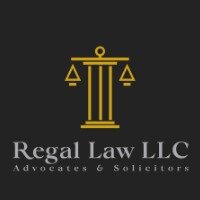Best Antitrust Litigation Lawyers in Singapore
Share your needs with us, get contacted by law firms.
Free. Takes 2 min.
Or refine your search by selecting a city:
List of the best lawyers in Singapore
About Antitrust Litigation Law in Singapore
Antitrust litigation in Singapore refers to legal actions involving the enforcement and interpretation of laws that promote fair competition and prohibit anti-competitive practices. The main purpose of antitrust law is to ensure that businesses operate on a level playing field, preventing practices such as price fixing, market sharing, bid rigging, and abuse of dominance. In Singapore, the Competition Act is the primary legislation governing antitrust matters. Disputes often arise when businesses or individuals believe these rules have been violated, leading to investigations, hearings, and potential court proceedings.
Why You May Need a Lawyer
There are several scenarios where you may need legal assistance in antitrust litigation:
- You are under investigation by the Competition and Consumer Commission of Singapore (CCCS) for suspected involvement in anti-competitive conduct.
- Your business has been accused of cartel activities, such as colluding with competitors to fix prices.
- You are a whistleblower seeking to report anti-competitive practices and require protection or guidance.
- Your company wants to review its business agreements and practices for compliance with the Competition Act.
- You seek compensation for harm suffered as a result of another company’s anti-competitive actions.
- You wish to appeal a decision made by the CCCS or respond to a penalty imposed.
- Regulatory changes or market developments might necessitate a legal review of your current operations under antitrust laws.
Handling antitrust disputes without experienced legal guidance can result in serious financial and reputational consequences, so early legal intervention is crucial.
Local Laws Overview
Singapore’s antitrust regime is rooted in the Competition Act, which came into force in 2006. The Act prohibits three main types of conduct:
- Anti-competitive agreements: This includes any agreement between businesses that has the object or effect of preventing, restricting, or distorting competition within Singapore. Examples include price fixing, market sharing, and bid rigging.
- Abuse of dominant position: Businesses with significant market power are barred from engaging in conduct that harms competition, such as predatory pricing or refusing to supply essential facilities.
- Mergers that substantially lessen competition: Certain mergers and acquisitions may be investigated and prohibited if they are likely to result in a substantial lessening of competition.
The CCCS is the regulatory authority empowered to investigate alleged breaches, enforce penalties, and issue guidance. The Act applies to most sectors, although some, like telecommunications, media, and energy, have their own sector-specific competition rules. Appeals against CCCS decisions can be made to the Competition Appeal Board and, subsequently, to the courts.
Frequently Asked Questions
What is antitrust litigation?
Antitrust litigation involves legal disputes about business conduct that may be anti-competitive, such as collusion, price fixing, or abuse of a dominant market position. In Singapore, these cases are primarily handled under the Competition Act.
Who enforces antitrust laws in Singapore?
The Competition and Consumer Commission of Singapore (CCCS) is responsible for the enforcement of antitrust laws and the investigation of suspected violations.
What are some examples of anti-competitive conduct?
Examples include price fixing, sharing markets or customers, bid rigging, limiting production, or abusing a dominant position by excessively pricing or refusing to deal with certain parties.
Can individuals or only companies be investigated?
While the focus is usually on companies, individual directors and officers involved in anti-competitive conduct can also face investigations and penalties.
How are penalties determined?
Penalties can include financial fines of up to 10 percent of annual turnover in Singapore for up to three years, directions to cease and desist, or orders to alter a company’s business practices.
Is leniency available to whistleblowers?
Yes, the CCCS operates a leniency program for parties that come forward with evidence of cartel activity. Leniency may include reduced penalties or immunity from fines.
Are there exemptions under the Competition Act?
Yes, certain agreements may be exempt if they provide economic benefits that outweigh their anti-competitive effects, for example, through the improvement of production or distribution.
Can I appeal a CCCS decision?
Yes, appeals can be made to the Competition Appeal Board, and further to the High Court or Court of Appeal on points of law or the amount of any financial penalty.
Are all industries subject to the Competition Act?
Most industries are covered, but sectors such as telecommunications, media, and energy have their own competition frameworks administered by sectoral regulators.
How long does an antitrust investigation typically take?
The duration varies depending on complexity. Some cases may be resolved in several months, while others involving extensive evidence or appeals can last years.
Additional Resources
If you need more information or support related to antitrust litigation in Singapore, the following resources may be helpful:
- Competition and Consumer Commission of Singapore (CCCS): Provides official guidelines, case studies, and the latest updates in competition law enforcement.
- Ministry of Trade and Industry (MTI): Oversees competition policy and regulatory framework development.
- Law Society of Singapore: Offers directories to specialists in competition and antitrust law.
- Singapore Academy of Law: Publishes legal digests and commentaries on recent antitrust cases.
- Legal clinics and pro bono services: Provide basic legal advice and preliminary consultations.
Next Steps
If you are facing issues related to antitrust litigation in Singapore, consider these steps:
- Consult a specialist lawyer: Seek advice from a law firm or practitioner with experience in antitrust matters. They can help assess the merits of your case and guide you through the relevant procedures.
- Gather documentation: Collect all relevant agreements, correspondence, and evidence related to the dispute or investigation.
- Understand your rights and obligations: Familiarize yourself with the Competition Act and related guidelines. Your lawyer can help interpret these rules as they apply to your situation.
- Consider early settlement or leniency programs: If you are implicated in anti-competitive conduct, timely action may result in reduced penalties or alternative resolutions.
- Monitor deadlines: Antitrust cases often involve strict time limits for submissions and appeals. Ensure you or your legal representative act promptly.
By engaging qualified legal help and acting proactively, you can better protect your interests and navigate Singapore’s robust antitrust legal framework.
Lawzana helps you find the best lawyers and law firms in Singapore through a curated and pre-screened list of qualified legal professionals. Our platform offers rankings and detailed profiles of attorneys and law firms, allowing you to compare based on practice areas, including Antitrust Litigation, experience, and client feedback.
Each profile includes a description of the firm's areas of practice, client reviews, team members and partners, year of establishment, spoken languages, office locations, contact information, social media presence, and any published articles or resources. Most firms on our platform speak English and are experienced in both local and international legal matters.
Get a quote from top-rated law firms in Singapore — quickly, securely, and without unnecessary hassle.
Disclaimer:
The information provided on this page is for general informational purposes only and does not constitute legal advice. While we strive to ensure the accuracy and relevance of the content, legal information may change over time, and interpretations of the law can vary. You should always consult with a qualified legal professional for advice specific to your situation.
We disclaim all liability for actions taken or not taken based on the content of this page. If you believe any information is incorrect or outdated, please contact us, and we will review and update it where appropriate.
Browse antitrust litigation law firms by city in Singapore
Refine your search by selecting a city.














